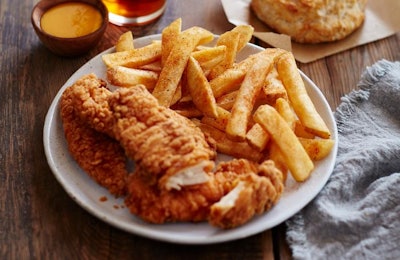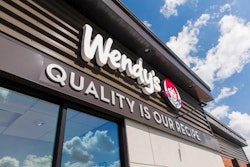
Make no mistake about it: Animal rights groups are intensifying their push to get every major purchaser of chicken to source only slower-growing broiler breeds that are raised according to Global Animal Partnership (GAP) standards.
If the continual growth of the list of restaurants and foodservice companies to commit to GAP standards isn’t enough evidence, take a look at what happened recently in Charlotte, North Carolina.
Protest at Bojangles’ Coliseum
Charlotte is the city where Bojangles’, one of the nation’s largest quick service restaurant chains specializing in chicken dishes, with 716 locations, primarily in the Southeast. A large entertainment venue in Charlotte carries the chain’s name: Bojangles’ Coliseum.
The Humane League recently held a protest at the coliseum, with participants holding signs with messages like “Stop This Cruelty,” “Bojangles’ Supports Animal Abuse,” and “Animals Deserve Better.” These signs all are The Humane League’s way of saying it thinks traditional broiler production is cruel, and that if the chain would adopt GAP standards, the lives of the chickens would be much better.
On its Facebook page, The Humane League – Charlotte, posted pictures and a video of the protesters. In the video, it was said that “a ton of activists” showed up. While in the figurative sense, you would think that a “ton” would be a major turnout, it was actually a pretty modest turnout, with around 20 activists there. At 100 pounds a person, it would be a ton in the literal sense.
Don’t dismiss this protest
While the turnout wasn’t necessarily huge, and it didn’t appear the protest gathered a lot of attention from the media, it is still something those in the broiler industry shouldn’t dismiss.
The one report I did see was before the event occurred. In what it labeled as an op-ed piece, Clture interviewed Maddie Segal, the Charlotte director of The Humane League.
In a basic question-and-answer format, Segal explained why the organization was protesting. Julia Simon, the conductor of the interview, seemed to support Segal’s viewpoints and didn’t question the accuracy of the claims that were all-to-often cliché. While the op-ed disclaimer was added, there was no visible attempt to get other opinions on the issue.
Time to communicate
One thing that caught my attention in this Q&A is Segal’s statement that “as of yet, [Bojangles’] “have not met with us or taken our suggestions.”
So clearly, The Humane League has reached out to Bojangles’ in an effort to get them to change their broiler sourcing policies. But have people in the industry reached out to tell Bojangles’ their side of the story?
It made me think of what the late Phil Keiser, during his time as president and CEO of QSR chain Culver’s, said at the 2016 Animal Agriculture Alliance Stakeholders Summit, several months before he passed away. Keiser, a former dairy farmer, said the animal agriculture community must make sure its voice is heard as much, if not more, than the animal rights community.
“We need to not only reach out to consumers, we need to reach out to executives,” Keiser said. “I hear from the activists way more than I hear from the ag community.”
So if your views differ from The Humane League’s, the window of time to break your silence is shrinking.


















